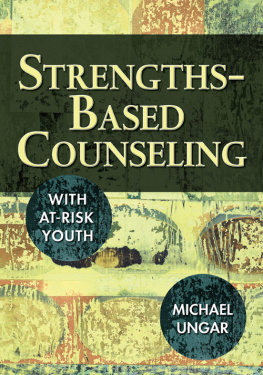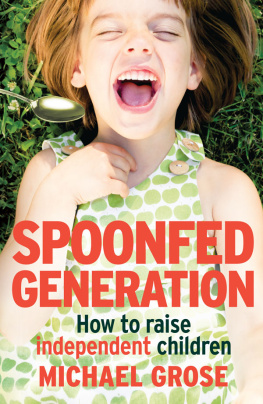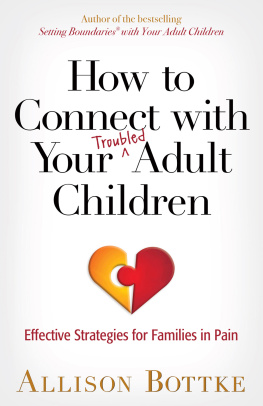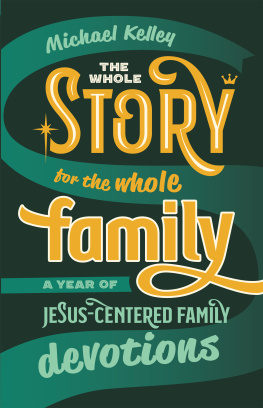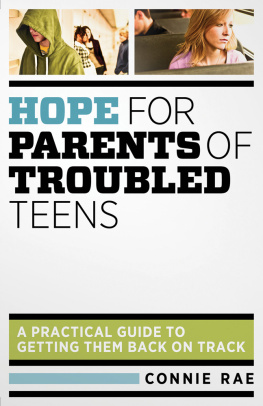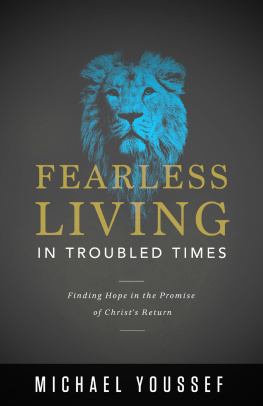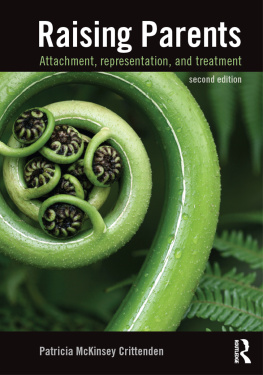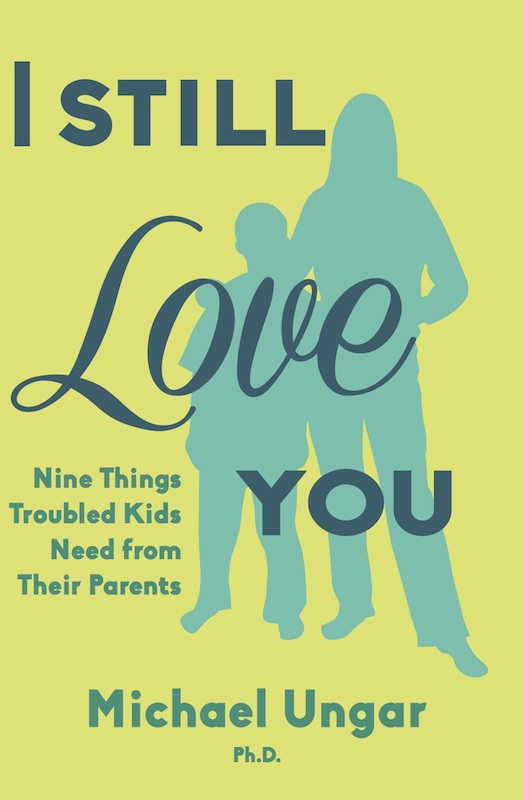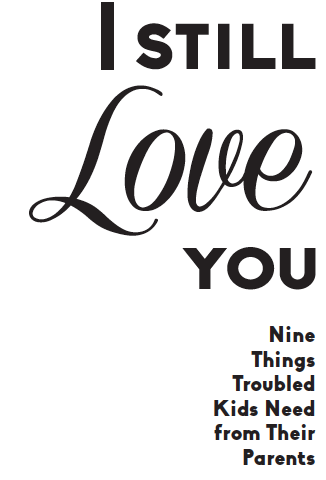In order to protect the privacy of all the individuals with whom I have had the privilege of working, the reader must know that the stories I share in these pages are simultaneously real and imagined. Though they are based on the lived experience of the many young people and their families I have met through my research and clinical practice, I have changed their stories to preserve their confidentiality. Only my own story is true and then only to the limits of my memory and whatever poetic licence I have taken to make sense of my experience as a child. Though none of the families portrayed actually exist as I describe them, some readers might think they recognize in these pages someone in particular. I would suggest the resemblance is more coincidental than factual.
In contrast, the research reported in this book is true and complete to the best of my knowledge. However, this book is intended only as an informative guide for those wishing to know more about parenting issues. In no way is this book intended to replace, countermand, or conflict with the advice given to you by your own health-care provider. The ultimate decision concerning care should be made between you and a professional. I strongly recommend you follow his or her advice if you find it sound. My publisher and I must, of course, disclaim all liability in connection with the use of this book.
Prologue
No More Problem Children
We know what to do to prevent children from tumbling into lives of chaos and pain. If you have a problem child, or are worried your child is becoming one, trust me, change can happen.
I know because I should have become one of those problem children with labels like delinquent, disordered, addicted, anxious, and truant. My children might argue I fit those labels some days, but they dont mean it. The cycle has been broken. They are great kids, as wonderful as the hundreds of children and adolescents who have come to see me and shed their troubled selves.
That, of course, is not what theyre like when we first meet in my office with their families, in juvenile detention centres, on the street, in the hospital, or in the shelters and foster homes where they are supposed to be staying. Meeting them for the first time, I think, My life could have been just as full of problems. They walk with difficulty, as if theyre wearing heavy woollen coats in a wet November snowstorm. Even when they swagger and purposely bully those around them, or try to hide, threaten suicide, or refuse to go to school, you can see the effort theyre making to hold their fragile lives together.
If you listen closely to the silly, hurtful things they yell at the adults in their lives, youll hear the strain in their voices as they plead for someone to convince them theyre special, untarnished, and loved. I know that voice and how it feels to be abandoned. I also know what it means to shed my heavy winter coat and stand shivering in the cold, looking for someone to help me make something of myself.
My life now hides my troubled start. I sit at a desk in a bright, sunny corner office at a prestigious research university. I should be in some darker place. I should be angry and alone. Im not. My children should hate me. They dont. Ive spent two decades wondering why I was able to shake the legacy of a physically abusive home, an emotionally cold workaholic father, a mother with an untreated mental illness, and all the chaos that followed. Ive wondered why I wasnt more truant, or violent, and why I never took my own life, despite having thought about it many times. As much trouble as I did get into drinking underage, having unprotected sex at fifteen, and running away from home I never became trapped by my problems.
Instead, I fought back, leaving home shortly after my sixteenth birthday, attending university with my own money, and eventually creating a family that is very different from the one in which I grew up.
Any childs life can have a fairy-tale ending, but no child is a hero who triumphs alone. Ive learned from the kids that when life is hard, the secret to our success isnt just inside us. We need people and opportunities that will give us what we need to thrive. Though its a lovely, comforting bit of popular culture to believe positive thinking is all it takes to change, real children who overcome real problems in mental health clinics, hospitals, detox centres, youth detention centres, special education programs, and all the other places they find themselves say they change when they get from us adults what they need to live less troubled lives.


